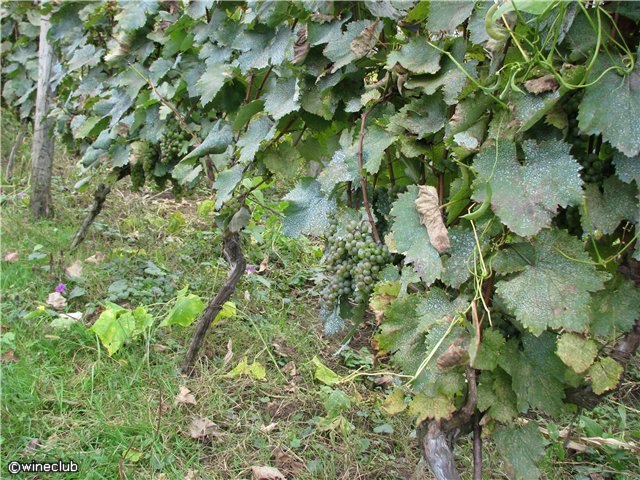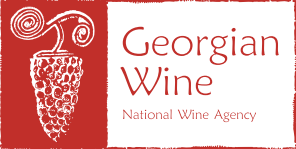
By Aleko Tskitishvili
Imeretian wine producers are facing one of the most difficult growing seasons this year: they have lost not just half, but up to 80% of the crop to a frost, which has been followed by grapevine diseases and severe drought later in 2014. A lot of growers could not have any harvest at all and the amount of wine produced by several wine companies and family-owned cellars is going to be unusually low.
The grape harvests in Georgia have started at the end of September. Most of the grapes in Kakheti region are already cropped by this time. An excessive rainfall in the middle of the month and a decrease in temperature caused the grape sugar levels to decrease. Because of that Kakhetian growers started to bring in their grapes one or two weeks later than usual. Kvareli and Akhmeta municipalities are now in the process of wrapping up their harvests, and the Outer Kakheti region is going to hold out until around the beginning of October.
The media have covered primarily the ongoing harvest in Kakheti. The Prime Minister and the government representatives are showing up once in a while in designated “harvest headquarters.” Contradictory information is delivered regarding the price of the Saperavi grapes as well. The media have reported the price of Saperavi to be sometimes 2Gel, sometimes 1,50Gel, sometimes 2,59 or 3 Gel per kilogram. According to the CEO’s of the large companies, the price of the Saperavi grapes are largely determined by the region they are coming from. If grapes are picked in Mukuzani or in other areas, where PDO wines are produced and their quality is good, then the price of those grapes is expected to be around 3Gel, wheareas the grapes that have been picked in Alazani Valley and in other less prominent areas cost relatively less.
The increase of Saperavi price has also been determined by the return of Georgian wines to the Russian market. The fact is that Saperavi grapes produce the most popular semi sweet red wines in Russia such as Kindzmarauli, Akhalsheni and others. Because of that, there is a growing competition among the wine companies that target the Russian market.
Unlike previous years, GruzVinProm – Georgian wine export company with a Russian name, has been actively involved in the harvest this year. The company purchased even damaged grapes for 0.40Gel per kilogram. The National Wine Agency has announced that state-owned enterprises have taken charge of helping producers sell low quality grapes including those that come from Kakhetian municipalities, which don’t produce high quality grapes and therefore, private companies have no interest in purchasing them.
Unlike Kakheti region, the harvest in Imereti is in under way without the provision of governmental subsidies. Still, the yield is so low and the demand – so high that the price of Tsolikouri grapes, for example, ranges from 1,20 to 1,50Gel per kilogram. Relatively rare varieties, such as Krakhuna, cost even more – 2Gel per kilogram.
Winery Khareba, which owns vineyards in Kakheti as well as in Imereti region, has started picking its grapes in Kakheti on August 26 and in Imereti – on September 5. According to a company winemaker, Lado Kublashvili, the yield in both regions is considerably low due to drought. Obviously, the heat caused early ripening of the grapes and as a result, the harvest was due to start earlier than usual.
“We have started our harvest on September 5 in Imereti, bringing in Krakhuna grapes first, which we grow in the village of Sviri. Soon, heavy rains started that caused the grape sugar levels to decrease. It affected especially the Tsitska varietal. Therefore, harvesting has been delayed up until now. The growers are very disturbed. Here, the government is not involved in the harvesting process. It does not provide subsidies or any kind of compensation. Despite the fact that there are only a couple of companies that purchase grapes from Imeretian growers and therefore, the competition is weak, the grape price is still higher compared to last year. For example, last year Krakhuna grapes cost 1,40Gel and Tsitska – 1,10Gel, wheareas this year, the price of Krakhuna has risen up to 2Gel and that of Tsitska – up to 1,50Gel per kilogram. Obviously, the prices are being forced up by smaller than expected grape harvests,” says Lado Kublashvili.
Large companies have managed to treat vine diseases through the use of agrochemicals. However, small growers, who have not been able to take vine disease-fighting measures, have more loss.
The vineyards of Imeretian Wine Company stand out with a wide range of Georgian and international varieties. According to Lasha Jugheli, the owner of the company, there have been two factors that led to the loss of 2014 vintage: buds were out when the frost hit and the summer drought. “The frost has wiped out most of the buds and in summer, the temperature has risen up to 45 °C. Our vines have not been affected by diseases though since we have been taking a good care of them by treating the vines with agrochemicals. However, the vineyards of small growers have been attacked by the diseases during the spring rains. Thus, the situation in Imereti is more difficult than it is in Kakheti. The growers don’t have grapes to sell. One will barely be able to purchase 50 or 100 kilograms of grapes, not to mention that it is impossible to buy grapes in large quantities. We have a very low yield ourselves – one fifth of what we expected.”
Among the varietals grown by Imeretian Wine Company in Sviri, Saperavi – a Kakhetian grape, has turned out to be the least susceptible to this year’s drought. Lasha Jugheli thinks that 2014 vintage of Saperavi wine is going to be of high quality despite its low quantity. A new PDO qvevri wine – Sviri is also a pleasant surprise from the company. The wine will be produced for the first time this year and released the next year.
As a matter of fact, we have written many times before how Imeretian Wine Company along with Khareba Winery had an advantage of producing Sviri – the only PDO wine from Imereti region, the wine that has not been offered for sale since the Soviet period. Luckily, Khareba Winery has broken the circle and offered a trial release of a 2013 vintage of Sviri wine for sale. According to Lado Kublashvili, the trial has been a success and therefore, despite the low yield, an increased amount of Sviri wine will be produced this year. Thus, Sviri wine produced by two different companies will be available for sale next year.
Gaioz Sopromadze, a winemaker from the Bagdati region, has lost all his crops to frost and drought: “There might be two people among thousand growers who have been able to pick two baskets of grapes here. I couldn’t pick enough grapes in my vineyards even for the purpose of using them as table grapes. So I haven’t had any harvest this year. I am a 63-year-old man and I don’t remember a vintage being as bad as it has been this year. So all I can do is to purchase Chkhaveri grapes from those growers, who have been lucky enough to pick their crops. Luckily, there is one man who has taken my advice and has been treating his vineyards organically for years and I will be able to purchase grapes from him to make an organic wine.”
Gaioz Sopromadze is still hopeful and continues planting new vineyards. In fact, he has already invested a lot in it: “This is not going to happen every year, right? I have already cultivated 2 hectares of land and am going to plant Chkhaveri, Tsolikouri, Dzelshavi and Tsitska varietals. I also really want to own one of the endangered grape varieties – Kundza, however, I have not been able to find the plants so far.”
Despite the loss, Archil Guniava, a grower from Kvaliti, is optimistic about his harvest: “Everything has worked out well for me – the grape sugar levels, the quantity and the quality of the yield are all good. Yes, spring frost hit my vineyards too, however, almost the same amount of second buds rose again. I also managed to protect the vines from diseases by spraying the vines quite often. Drought has not affected my land either as I don’t usually cut the top of the shoots, which protects them from the heat. This applies to Tsitska, Tsolikouri and Krakhuna grapes. As to Otskhanuri Sapere, I could not save this varietal. Even though I sprayed the vines even more often, taking only a 5-day interval, the mildew still hit them and I was not able to suppress the disease during the whole season. Thus, I’m not completely satisfied either.”
Among the abnormal conditions that are present this year, another interesting fact has taken place: harvests in Imereti usually start later than those in Kartli. This has changed. Iago Bitarishvili, a grower from Kartli region, says that he too is very surprised with it. Drought has affected Kartli, as well as Kakheti and Imereti regions. It is possible that the annual rainfall in Kartli has been higher, which could have brought this opposite outcome. There might have been other factors as well, but currently, there are no measurements or evaluations taking place to investigate these factors. All in all, the fact is the following: Imereti has passed the baton to Kartli this year.
© vinoge.com






